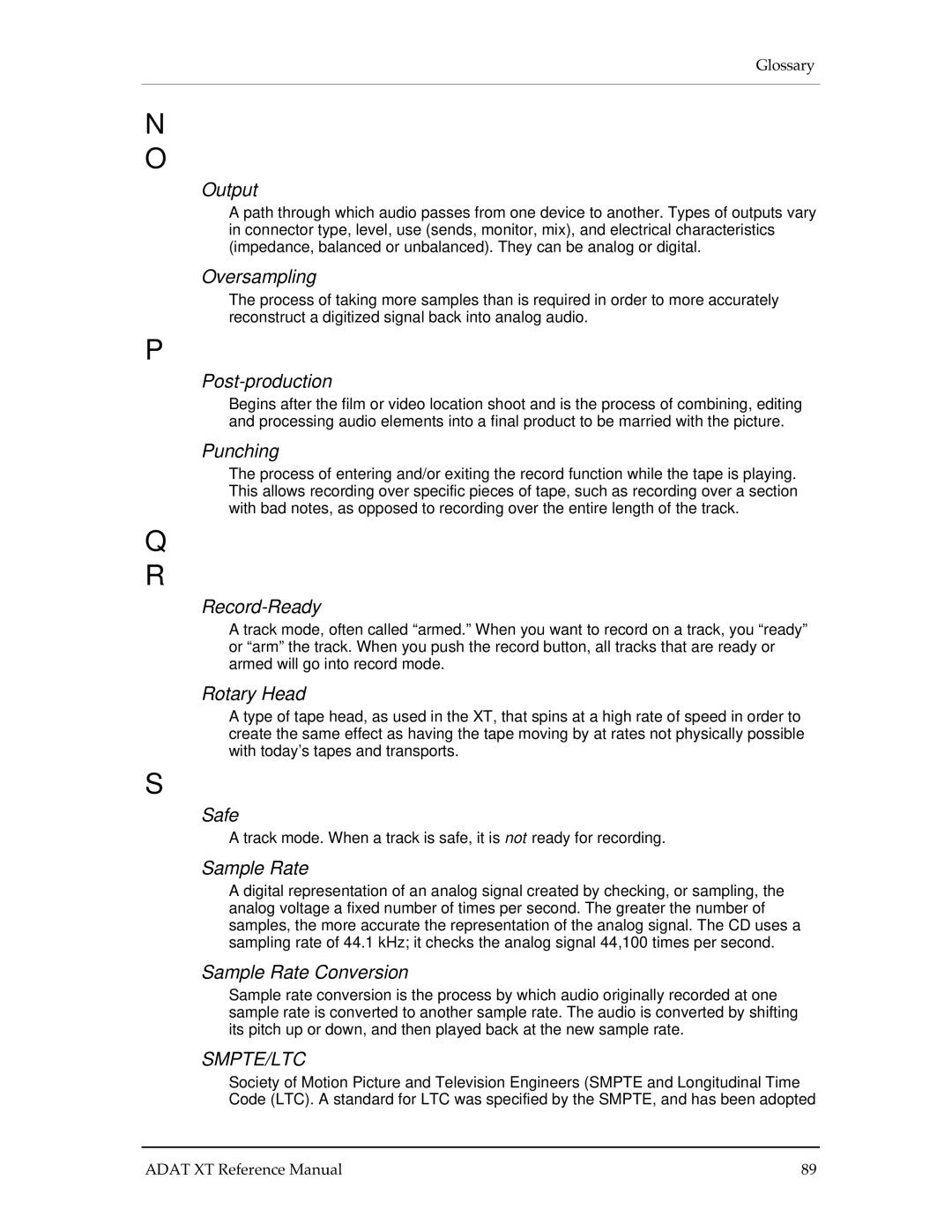
Glossary
N
O
Output
A path through which audio passes from one device to another. Types of outputs vary in connector type, level, use (sends, monitor, mix), and electrical characteristics (impedance, balanced or unbalanced). They can be analog or digital.
Oversampling
The process of taking more samples than is required in order to more accurately reconstruct a digitized signal back into analog audio.
P
Post-production
Begins after the film or video location shoot and is the process of combining, editing and processing audio elements into a final product to be married with the picture.
Punching
The process of entering and/or exiting the record function while the tape is playing. This allows recording over specific pieces of tape, such as recording over a section with bad notes, as opposed to recording over the entire length of the track.
Q
R
Record-Ready
A track mode, often called “armed.” When you want to record on a track, you “ready” or “arm” the track. When you push the record button, all tracks that are ready or armed will go into record mode.
Rotary Head
A type of tape head, as used in the XT, that spins at a high rate of speed in order to create the same effect as having the tape moving by at rates not physically possible with today’s tapes and transports.
S
Safe
A track mode. When a track is safe, it is not ready for recording.
Sample Rate
A digital representation of an analog signal created by checking, or sampling, the analog voltage a fixed number of times per second. The greater the number of samples, the more accurate the representation of the analog signal. The CD uses a sampling rate of 44.1 kHz; it checks the analog signal 44,100 times per second.
Sample Rate Conversion
Sample rate conversion is the process by which audio originally recorded at one sample rate is converted to another sample rate. The audio is converted by shifting its pitch up or down, and then played back at the new sample rate.
SMPTE/LTC
Society of Motion Picture and Television Engineers (SMPTE and Longitudinal Time Code (LTC). A standard for LTC was specified by the SMPTE, and has been adopted
ADAT XT Reference Manual | 89 |
